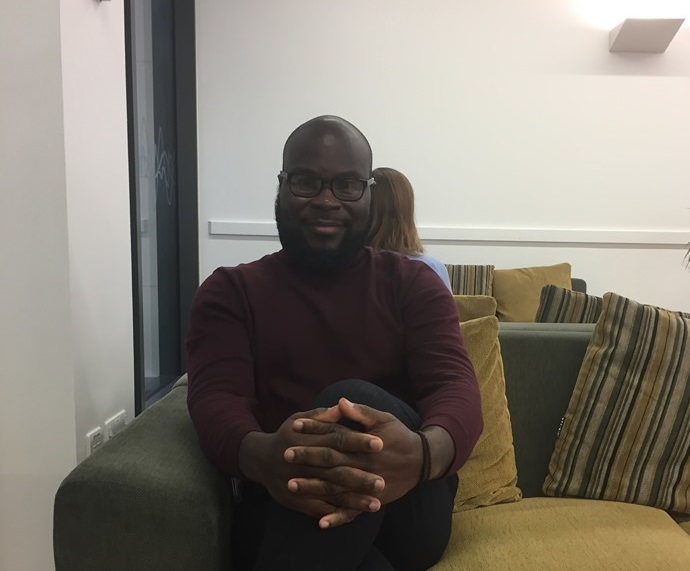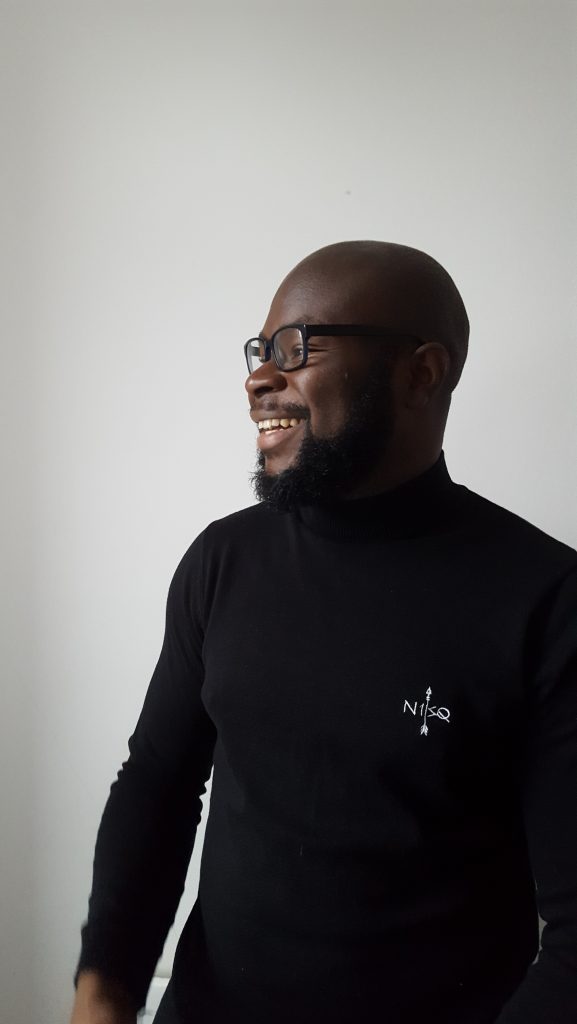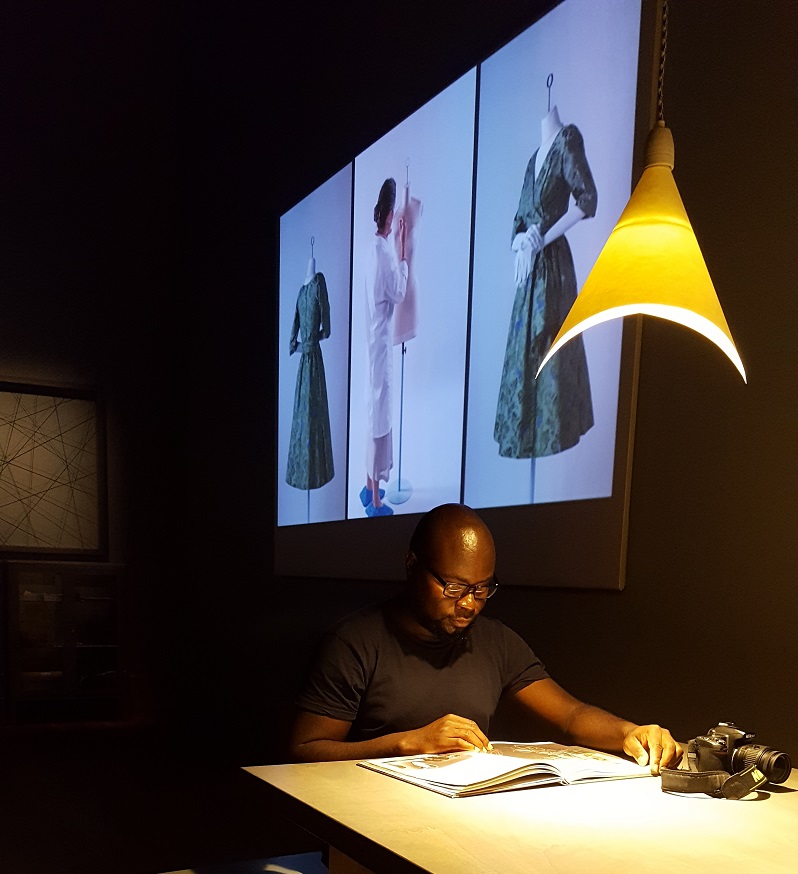October was Black History Month, a month dedicated to celebrating black people in the UK. Through this Personal Histories blog series we hoped to honour our own staff and students at Newcastle by speaking to them about their interests, likes and dislikes and aspects of their culture, to learn more about their stories and histories.
For our fourth and final blog in the series, we had a very interesting chat with Dental Sciences Teaching Fellow, Adetunji Otemade to find out more about his interests, perspectives and career.
How did you end up in Newcastle?
When I saw the job application I was in the process of relocating to New Zealand actually, to work in New Zealand and well… things changed! I’ve always wanted to go into academia and obviously how I applied was a last minute thing, but I got the interview, got the job and it’s been great since then. I’ve always been around in the North East because I did my bachelor’s degree at Teesside University and went on to do my masters at Teesside as well, so I would consider myself a Northerner.

How did you become involved in your role?
I trained as a Dental Hygienist and Therapist and after my first degree I worked in practice for a while, then worked within communities. I’ve always felt a keen interest and a spark when it comes to research, so I went ahead and did a master’s in Public Health. When I finished my master’s degree I worked down south in London with an NHS Trust where I was involved with various dental outreach projects which include dental care for the elderly in care homes, dental care for the homeless and primary school visits. After my master’s degree I wanted to do a PhD which was a reason why I was looking to go abroad, but then this job came up and I just feel it’s a perfect fit.
When it comes to pursuing a PhD degree or research in general, in our profession as Dental Hygienists and Therapists, we don’t necessarily have lots of people going ahead and doing PhDs – we do have a couple staff around here that have got their PhD and it’s actually following their footsteps and doing something worthwhile, but at the same time doing something that you enjoy and contributing to the profession as a whole. So yeah, it’s been a long journey; I actually started as a dental nurse back in 2007 which was when I moved up to the UK from Nigeria.
What are your main hobbies and interests outside of your role?

I love photography, and I do a blog – a men’s style, men’s fashion blog, just taking photos and writing about how to dress and stuff. Hopefully it’s still working because I can’t remember the last time I posted, with my workload and trying to balance that. I enjoy photography as well, grabbing my camera, going out and taking shots and pictures. But yeah, my main hobby outside of the University is basically fashion photography and blogging.
I love music as well and I’m trying to combine my love for music with the kind of research that I’m doing in terms of music therapy, or how music affects our brains when it comes to managing anxiety in patients.
What would you regard as your proudest achievement?
On a professional level I would say getting to where I am today; it’s been a long journey considering the background that I came from. I’ve always been in an academic environment as my dad taught at a higher institution before he retired, and my mum as a primary school teacher and eventually as a head teacher before she retired. However, it’s not been an easy journey. I had to leave university during the first year of my animal science degree back then. My reason for leaving was because I was young and dumb; however, the constant university strike that was rampant in the country back then did not really help either. I was lucky to have my aunty who happened to come over to Nigeria from the UK on a visit and thought the environment was not really ideal or working for me and made plans for me to come over, all of which only took about 4 months. So finding myself in this environment from somewhere where you’ve struggled in the past and it’s taken you loads to actually get to know yourself, to get to a place where you have a master’s degree and hopefully start your PhD… It’s a great achievement.
Aside from my work and academics I would say it’s having a family, having my kids.
What’s the biggest challenge you have faced?
It’s a difficult one, you know. In terms of challenges I would say looking back it’s been very difficult to climb the career ladder, so to speak, and I think it depends on the level that you are, for example if you’re starting from scratch.
In terms of my profession, being a dental nurse back in the day used to be mainly dominated by females so I’ve experienced sort of, like, discrimination along the lines. Things are changing now but we still have a long way to go in the UK and the world generally when it comes to making things equal for men, women, people from different races and backgrounds, sexual orientation and everything. Sometimes it’s very difficult to cope with the fact that you’ve lectured, you’ve taught students here, you’ve mixed with lots of people, and on your way home you still get racially abused. In 2019. So yeah, so that’s a very big challenge.
What inspires you?
Life. Knowledge. And self. I just see life as a journey, and I feel we need to appreciate knowledge and cherish it. Once you’re knowledgeable – well, you can’t know everything – but once you’re more knowledgeable it makes you much more informed and when you know your rights and you know what’s right for you then that can be moved through life, knowing that you know. And in terms of life, as we all live on this planet, we are all human beings regardless of where you’re from, your sexual orientation, religion and everything and as long as other people are happy then you can be happy. So that’s what inspires me, and seeing everyone achieving their full potential is something that I cherish a lot. I think that that’s what brought me to this role because you want to inspire knowledge and inspire the next generation of young kids who will go ahead and do greater things.

Can you give me a selection of your favourite things from your culture, favourite music, films, food, literature etc?
Food! Being a Nigerian man, we don’t joke with our food. So local food, I know lots of people talk about jollof rice and stuff like that, but personally for me, a food called iyan which is yam flour meal, pounded yam, or you have eba (made from cassava). I think they now call those types of food swallow – that was something I heard recently – I went to Nigeria last year but it’s been a while and things have changed since moving over here, emergence of these new things. So swallow is any food that is made like maize meal, cassava meal, those types of foods and you eat them with spicy sauce, vegetables and stuff with meat, fish; that’s a big thing. So food is very important and special. Then it’s just the culture, the music and swag; I don’t know if people are aware of it but African music is poppin’ right now. The likes of Burna Boy, Davido, Wizkid, Runtown, just to mention a few, are popular at the moment. So yeah, definitely the food and the music.
What do you think about when you hear “Black History Month”?
Obviously because my early education is not from the UK I don’t really know much about Black History Month, whereas if you ask my son or my children they will know as they’ve been taught. But having lived in the UK for quite a while now I understand that from a Western perspective Black History Month is basically to celebrate the achievements of black people in the UK, to look back and see how far they’ve come, the struggles and how far they still need to go as a community.
In terms of the context of Black History Month here it’s all about the achievements of black people through the Windrush and I think that’s the lens that we normally use. But as Africans, or western Africans we have a different history even compared to the Caribbean and everything. For example, as far as I’m aware in my family we’ve had great great grandparents or family members who migrated to the UK around the 1920s and there is little that we know about it – what I’m trying to say is that there’s lots of different ‘black’ history and I don’t know… To try and pull everything together and celebrate a month, I don’t think that works. But having said that, if that’s something we need to do for the purpose of equality which includes every race, then we just have to do it and keep working with it.
As a Nigerian I would say I don’t see myself as black and I have never seen myself as a black man until arriving in the UK. I am a human being who is fortunate to be born in the part of the world I was born. I just feel I’m now in an environment where we have these labels and systems. However, this is where we are now and in order to make a change and spread the message that we are all human then I need to make my voice heard. We have blacks, Caucasians – we’re all human beings. I think I’m at that stage where I’m still trying to understand why we have to have this month – what about people of Chinese origin, Asian origin – are we going to have history for everyone? But this is what we’ve got now so we’ve got to work with it.
Thank you so much to Adetunji for doing this interview with us – we are so grateful, and really enjoyed hearing his perspectives. And the music recommendations have not gone unappreciated!
That’s one of the best parts about celebrating one another and sharing our stories or ideas with others – you never know what you might learn, or the impact that a fresh perspective could have. We hope that you’ve enjoyed our Personal Histories blog series, and we would encourage you to get involved…
If you would like to speak to us about yourself, a topic you’re interested in or maybe even an event you’re involved with, we would be more than happy to share it on our blog. The more interactive the better, so don’t hesitate to contact us.

